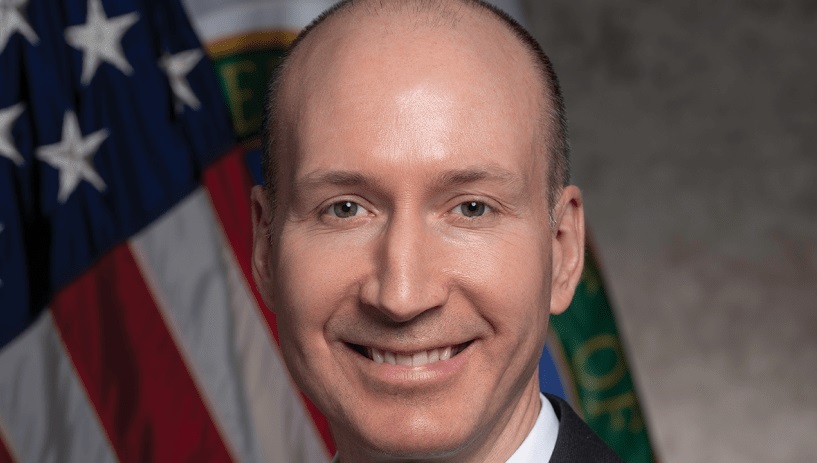U.S. Department of Energy Office of Science
U.S. Government: Agencies/Departments/Divisions | Federal Agencies
Recent News About U.S. Department of Energy Office of Science
-
New materials research at CU Boulder will help develop high-efficiency solar cells
Researchers in the Department of Chemical and Biological Engineering and the Materials Science and Engineering Program have published new findings in Joule that could lead to the development of better hybrid lead halide perovskites – a class of materials proposed for use as low-cost, high-efficiency solar cells.
-
US forests face an unclear future with climate change
When you walk through a forest, you are surrounded by carbon. Every branch and every leaf, every inch of trunk and every tendril of unseen root contains carbon pulled from the atmosphere through photosynthesis.
-
Engineering Cyanobacteria for cross-cultural exchange
Cyanobacteria, photosynthetic microorganisms which have widespread uses in the production of pigments, antioxidants and supplements and potential ones in biofuels and plastics, have a new way to communicate to control their population, researchers from the MSU-DOE Plant Research Laboratory (PRL) Ducat lab show.
-
Quantum New Mexico Exchange Workshop inspires collaborative opportunities for next generation of QIS leaders
Last year, some of the greatest powerhouses in Quantum Information Science (QIS) came together to advance research, education, workforce, and economic development through the launch of Quantum New Mexico (QNM).
-
New atomic-scale understanding of catalysis could unlock massive energy savings
Catalysts are materials that accelerate chemical reactions without undergoing changes themselves.
-
Penn State Biochemist Applies Aging Research to Yeasts
Biochemist Melanie McReynolds researches metabolism and aging, and the role of stress in that process.
-
Shedding Light on Mechanisms of Electrochemical Energy Storage
Understanding why certain materials work better than others when it comes to energy storage is a crucial step for developing the batteries that will power electronic devices, electric vehicles and renewable energy grids.
-
MSU to refurbish world’s first superconducting cyclotron for chip testing
Michigan State University (MSU) will build on its 60-year track record in accelerator-based nuclear physics leadership by refurbishing the history-making K500 cyclotron and installing it as the heart of a new chip-testing facility for next-generation semiconductor devices.
-
Chemistry Professor Wins DOE Faculty Award
Gerard Dumancas, Ph.D., associate professor of chemistry at The University of Scranton, was selected as a Visiting Faculty Fellow by the U.S. Department of Energy (DOE).
-
Assessing Ice Formation in the Atmosphere
The formation of ice crystals in the atmosphere is a phenomenon that impacts cloud formation, weather, and precipitation amounts, and is thus essential for life on earth dependent on water.
-
Researchers discover new class of ribosomal peptide with hemolytic activity
Living organisms produce a myriad of natural products which can be used in modern medicine and therapeutics.
-
UCI researchers join DOE-funded project to reinvent lithium-ion battery recycling
The U.S. Department of Energy has granted $10 million to a multidisciplinary team, including researchers at the University of California, Irvine, to devise new methods for recycling end-of-life lithium-ion battery materials.
-
White House honors campus chemists Darleane Hoffman, Gabor Somorjai
The White House honored campus professors Darleane Hoffman and Gabor Somorjai on Tuesday with the Enrico Fermi Presidential Award, one of the government’s “oldest and prestigious” awards.
-
Improved film is a big step on the road to sustainable hydrogen
Hydrogen is not only the most abundant element in the universe, it’s also one of the most promising green fuels.
-
Scientists use computational modeling to design “ultrastable” materials
Materials known as metal-organic frameworks (MOFs) have a rigid, cage-like structure that lends itself to a variety of applications, from gas storage to drug delivery.
-
Team finds major storage capacity in water-based batteries
Researchers at Texas A&M University have discovered a 1,000% difference in the storage capacity of metal-free, water-based battery electrodes.
-
International workshops on muon collider physics and detectors
Fermilab hosted a workshop dedicated to muon collider physics and detectors on Dec. 14-16, 2022, in which approximately 80 scientists from around the world participated in-person and many more participated remotely due to occupancy limitations.
-
Lab engineer shares in DOE project award for work on the Vera C. Rubin Observatory
A Lawrence Livermore National Laboratory (LLNL) engineer and the SLAC National Accelerator Laboratory are among those sharing a Department of Energy (DOE) award for their roles in building the world’s newest observatory.
-
New foundry to accelerate quantum information research at Argonne National Laboratory
Quantum information technologies have the potential to transform our everyday lives.
-
DOE Announces Winners of 33rd Annual National Science Bowl®
Today, students from Lexington High School in Lexington, Massachusetts, and BASIS Independent Bellevue in Bellevue, Washington, won the U.S. Department of Energy’s (DOE) 33rd Annual National Science Bowl®, a competition testing students’ knowledge of chemistry, Earth science, biology, mathematics, and other disciplines.















